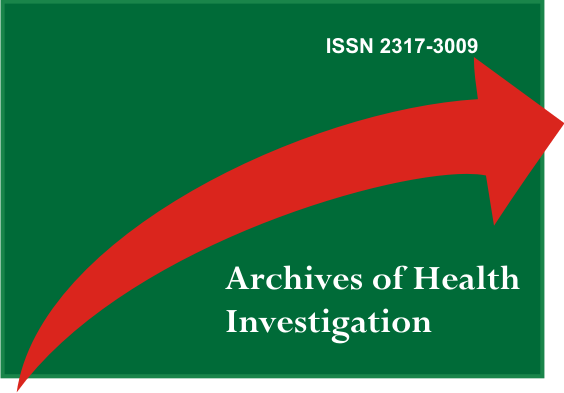Z-oo5 Evaluation of β-TCP osteoconduction in calvaria of rats. Histometric analysis
Resumo
Objectives: Autogenous bone grafts are considered the "gold standard" in the literature, both for quality and quantity of newly formed bone are superior when compared to other grafts. However, autologous bone grafts have limitations such as the need for a second surgical site and pitch, increasing surgical morbidity; limited availability for large reconstructions and unpredictable resorption rate. This led researchers to consider as an alternative its association with biomaterials or just using these as bone substitutes. The aim of this study was to evaluate the osteoconductivecapacity of calcium phosphate ceramic in critical size defects in rats’ calvaria. Methods: 45 rats (Rattus norvegicus, Albinus, Wistar) adult male, weighing between 450 and 500g were used. A defect of 7 mm diameter was performed on the calvaria of each animal. The animals were divided into three groups according to the material filling the defect. They were: clot (CG), membrane clot (MCG) and calcium phosphate ceramic (CPCG). Euthanasia were performed within 7, 30 and 60 days. The specimens were fixed in10% formalin, processed and stained with HE. Statistical analysis were conducted by comparing the control group and the treated. The tests were conducted by GMC software used for statistical analysis in studies in health. Results:The 7 and 30 days experimental did not exhibit statistical difference in newly formed bone area between the fillers tested (p>0,05), however, when the 60-day group were compared, CPCG group showed a statistically significant new bone formation when compared to CG and MCG (p>0,001). Conclusions: Thus, the results suggest that the tested material may be a potential alternative grafts.Downloads
Não há dados estatísticos.
Downloads
Publicado
2015-12-23
Como Citar
Puttini, I., Faverani, L., Aranega, A., Carvalho, P., Okamoto, R., & Ávila-Souza, F. (2015). Z-oo5 Evaluation of β-TCP osteoconduction in calvaria of rats. Histometric analysis. ARCHIVES OF HEALTH INVESTIGATION, 4(1). Recuperado de https://archhealthinvestigation.emnuvens.com.br/ARCHI/article/view/930
Edição
Seção
Patologia e Propedêutica Clínica


